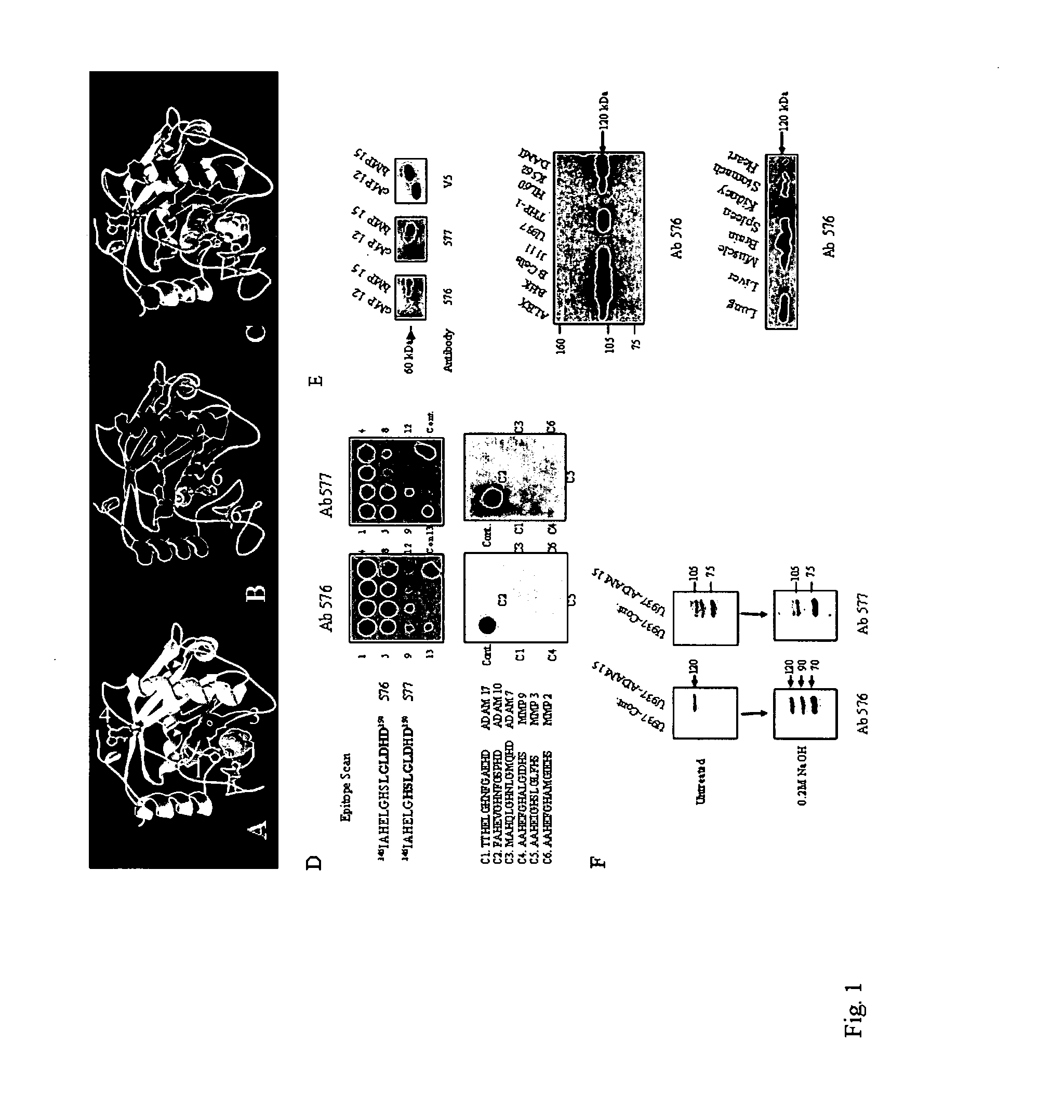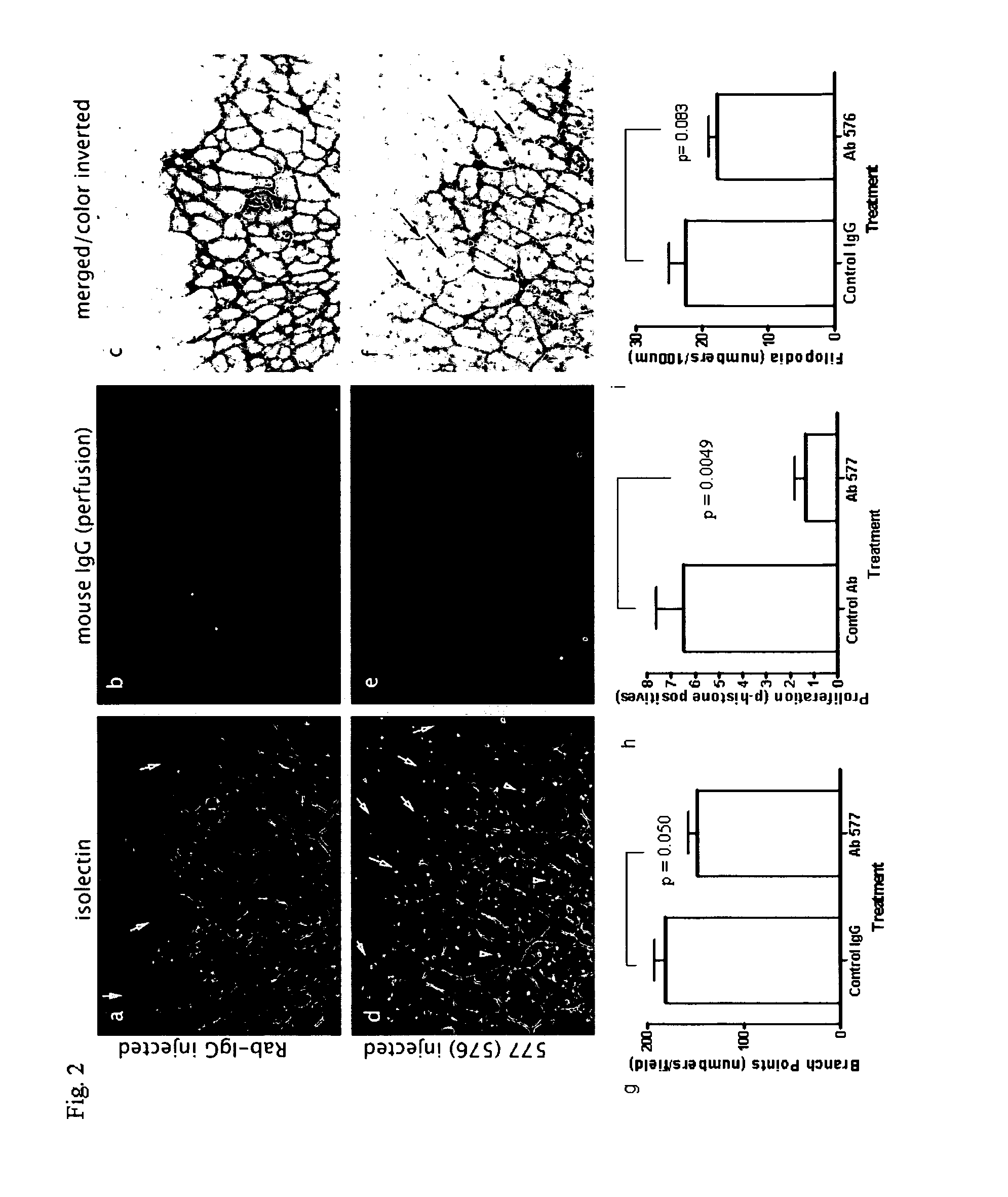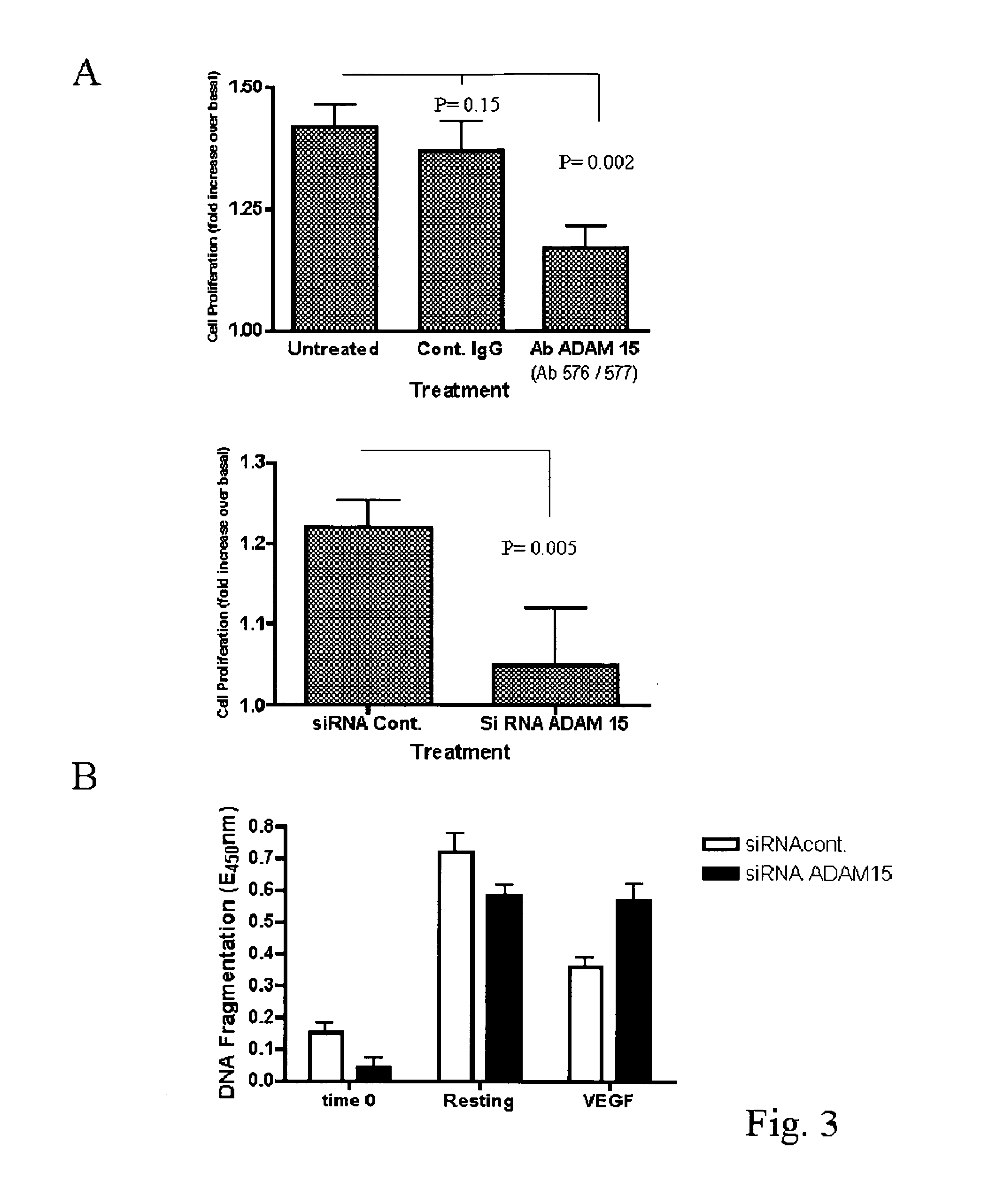Adam-15 antibodies and immunogenic peptides
- Summary
- Abstract
- Description
- Claims
- Application Information
AI Technical Summary
Benefits of technology
Problems solved by technology
Method used
Image
Examples
example 1
Materials and Methods
Reagents
[0182]A human ADAM 15 cDNA clone was kindly provided by Dr Carl Blobel (Cornell University, NY). A canine ADAM 12 cDNA was isolated from a canine smooth muscle cell library by standard oligonucleotide hybridization followed by subcloning into expression vectors (see below). uPAR polyclonal and monoclonal antibodies were obtained from R&D systems, siRNA were produced using the Silencer™ construction kit (Ambion) according to the manufacturer's instructions. ADAM 15 specific primers sets were 5′AACTCCATCTGTTCTCCTGACTTCCTGTCTC 3′ (SEQ ID NO: 4) for the sense template and 5′ AAAAGTCAGGAGAACAGATGGAGCCTGTTCTC 3′ (SEQ ID NO: 5) for the antisense template. Control siRNAs were generated using the primer sets 5′AAGCCCTTCCTTCCAGTTACCTTTCCTGTCTC 3′ (SEQ ID NO: 6) for the sense template and 5′ AAAAAGGTAACTGGAAGGAAGGCCCTGTCTC 3′ (SEQ ID NO: 7) for the antisense template. Anti-uPAR antibodies used were from R&D Systems, Oxon UK, a monoclonal (no MAB807) and a polyclona...
example 2
Development of Function Blocking Site-Directed Antibodies to ADAM 15
[0189]To facilitate a rational design of a peptide immunogen for the development of a function-blocking site-directed anti-peptide antibody towards the ADAM 15 MP domain, a molecular model of the ADAM 15 MP domain was constructed using the crystal structure of the snake venom disintegrin-metalloprotease Adamalysin II (26).
[0190]FIG. 1. shows the development and characterisation of ADAM 15 MP domain site-specific antibodies. Panel A-A molecular model of the ADAM 15 metalloprotease domain was constructed using ProModII (Swiss-Model). Ribbon diagram of a 2 {acute over (Å)} structure of adamalysin II complexed with a peptide phosphonate inhibitor. Histidine side chains in the catalytic cleft are marked (1) coordinating a Zinc atom (2). The phosphonate peptide is marked (3) in the a space filling model. Opposite to this active-site cleft is an integrated calcium ion (4) coordinated by carbonyl and strongly conserved carb...
example 3
ADAM 15 MP Domain Antibodies Dysregulate Angiogenesis
[0195]To investigate the role of ADAM 15 in angiogenesis in vivo, we studied the effects of Abs 576 and 577 compared to control IgG on the developing vascular plexus in post-natal mouse retina. Intraocular microinjection of either Abs 576 or 577 into normal mice promoted a dysregulated angiogenic response (FIG. 2a-f).
[0196]FIG. 2 shows ADAM 15 MP directed antibodies dysregulate angiogenesis. (Panels a-f) Whole-mounts of retinas 48 h after intraocular injections with control rabbit-IgG (a-c) and ADAM 15 antibody Ab 576 or Ab 577 (d-f), vessels are detected by isolectin staining (depicted in panels a and d of FIG. 2; stained green in the original experiments) and perfusion with mouse IgG (depicted in panels b and e of FIG. 2; stained red in the original experiments). Merged images with inverted colour to highlight the perfusion of vessels (c, f). Panels (a-c) Normal vascular patterning is seen in control-injected retinas. Panels (d ...
PUM
| Property | Measurement | Unit |
|---|---|---|
| Fraction | aaaaa | aaaaa |
| Catalyst | aaaaa | aaaaa |
Abstract
Description
Claims
Application Information
 Login to View More
Login to View More - R&D
- Intellectual Property
- Life Sciences
- Materials
- Tech Scout
- Unparalleled Data Quality
- Higher Quality Content
- 60% Fewer Hallucinations
Browse by: Latest US Patents, China's latest patents, Technical Efficacy Thesaurus, Application Domain, Technology Topic, Popular Technical Reports.
© 2025 PatSnap. All rights reserved.Legal|Privacy policy|Modern Slavery Act Transparency Statement|Sitemap|About US| Contact US: help@patsnap.com



